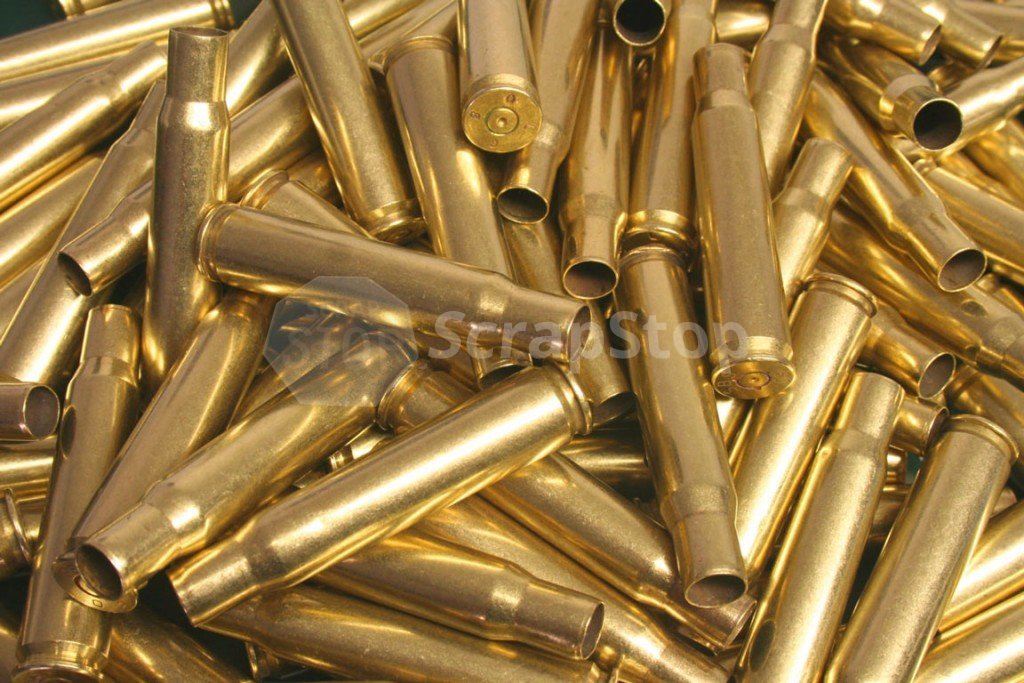Have you ever wondered what happens to the brass shells you spent hours collecting after a day at the range? While some may see them as nothing more than spent ammunition, these seemingly discarded pieces hold a hidden value: the potential for a sustainable future in shooting.

Image: myscrapstop.com
Recycling brass shells offers an eco-friendly solution to the growing problem of waste generated by the shooting sports. This practice benefits the environment by diverting brass from landfills, reducing the need for mining new resources, and minimizing the overall carbon footprint of the industry. For the avid shooter, recycling provides an opportunity to remain engaged with their passion while leaving a positive impact on the world.
Brass Shells: A Precious Resource
From Copper Mines to Firing Ranges
Before we delve into the specifics of recycling, it’s essential to understand where brass shells come from and what makes them valuable. Brass, an alloy of copper and zinc, is a highly sought-after material for its durability, malleability, and resistance to corrosion. These qualities make it ideal for manufacturing ammunition, as it can withstand the intense pressure and heat generated during firing without breaking or degrading.
The journey of brass shells begins in copper mines, where copper ore is extracted and refined. This copper is then blended with zinc to create brass, which is molded and formed into shell casings These casings are then loaded with primers, propellant, and projectiles, forming complete rounds of ammunition. Once fired, the shells are ejected from the firearm, leaving behind a tangible reminder of the shooting experience.
The Value of Brass Recycling
Once collected, spent brass shells hold value for a variety of reasons:
- Resource Conservation: Recycling brass shells helps conserve natural resources by reducing the need for mining new copper and zinc.
- Environmental Protection: Landfilling brass shells contributes to environmental pollution, as brass can leach harmful metals into the soil and water. Recycling prevents this contamination.
- Economic Benefit: Many recyclers offer cash incentives for collecting and returning brass shells, making it a profitable endeavor, particularly for large-scale users.

Image: www.recyclerangelead.com
The Recycling Process: Turning Waste into a Treasure
Collection and Sorting
The recycling process begins with the collection of brass shells. Shooters can collect their own spent shells after a day at the range, or they can participate in organized shell drives, where collections are coordinated by shooting clubs or organizations. Many shooting ranges have collection bins specifically for spent brass, facilitating responsible disposal.
Once collected, brass shells are typically sorted by caliber and condition. Sorting ensures that only reusable shells are processed, separating out damaged or contaminated pieces. This process helps to maintain the quality of the recycled brass and optimize its potential for reuse.
Processing and Cleaning
The next step involves cleaning and processing the brass shells. This can include processes such as tumbling, which removes dirt and debris, and resizing, which restores the shells to their original dimensions. Cleaning ensures that the recycled brass meets the required specifications for reloading or manufacturing new ammunition. During the cleaning process, it’s vital to avoid harmful chemicals that could contaminate the brass and compromise its quality.
Melting and Casting
After cleaning, the brass shells are melted in a furnace and cast into ingots. This process transforms the previously spent shells into a reusable form that can be used to manufacture new products. The melted brass is carefully monitored to ensure consistency and quality, ensuring that the resulting ingots meet the required standards for downstream applications.
What Happens to Recycled Brass?
The recycled brass ingots find a variety of applications, contributing to various industries and sectors. Some of the most common uses include:
<ul>
<li><strong>Ammunition Manufacturing: </strong>The recycled brass is commonly used to manufacture new ammunition components, such as shell casings and bullets. This creates a closed-loop system for brass, minimizing the need for virgin materials. </li>
<li><strong>Automotive Parts: </strong> Recycled brass can be employed to create automotive components that are known for their durability and resistance to wear. </li>
<li><strong>Industrial Machinery:</strong> Its resistance to corrosion makes recycled brass ideal for manufacturing components for industrial machinery, ensuring long-term performance and reliability. </li>
<li><strong>Musical Instruments: </strong> The resonant properties of brass make it popular in the manufacturing of musical instruments, such as trumpets, trombones, and tubas. </li>
<li><strong>Art and Crafts:</strong> Artisans often use recycled brass for jewelry making, sculptures, and home décor, adding a touch of history and sustainability to their creations. </li>
</ul>The Growing Importance of Brass Recycling
The popularity of recycling brass shells has been on the rise in recent years, driven by a growing awareness of environmental sustainability and the desire to make a positive impact. Several organizations and initiatives are promoting responsible brass recycling and supporting the industry’s growth.
Many shooting ranges and organizations have implemented collection programs and partnerships with recyclers, making it easier than ever for enthusiasts to contribute to a more sustainable shooting experience. These efforts not only benefit the environment but also encourage a sense of community within the shooting sports. As we move towards a more environmentally conscious future, recycling brass shells has become an essential practice for responsible shooters.
Recycle Brass Shells
Contributing to a Sustainable Future
By participating in brass shell recycling programs, you can contribute to a more sustainable future for shooting and for the planet. Your actions, however small they may seem, have a collective impact on reducing environmental footprint and preserving natural resources.
By choosing to recycle brass shells, you’re not just throwing away spent ammunition; you’re investing in a future where shooting enthusiasts can enjoy their passion while contributing to a cleaner and greener planet. So, next time you’re at the range, remember to collect your spent shells and recycle them. It’s a small step that can make a big difference!






